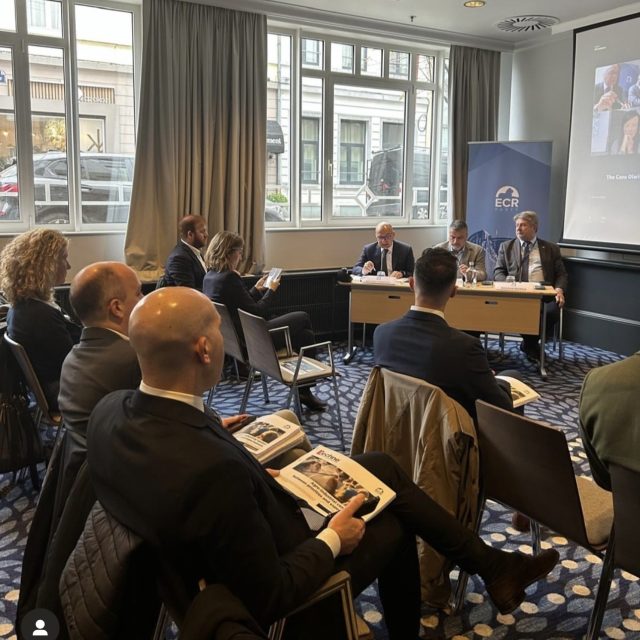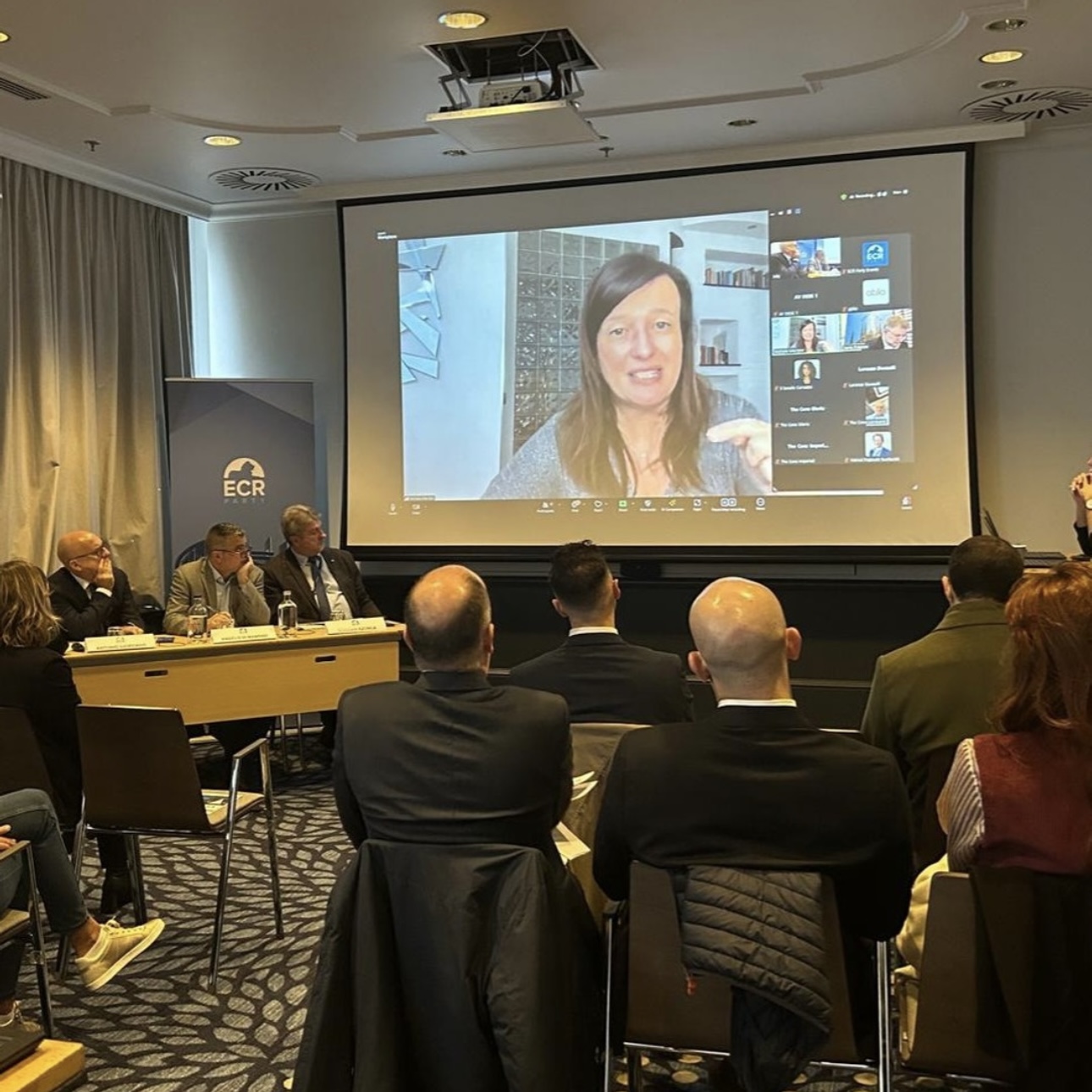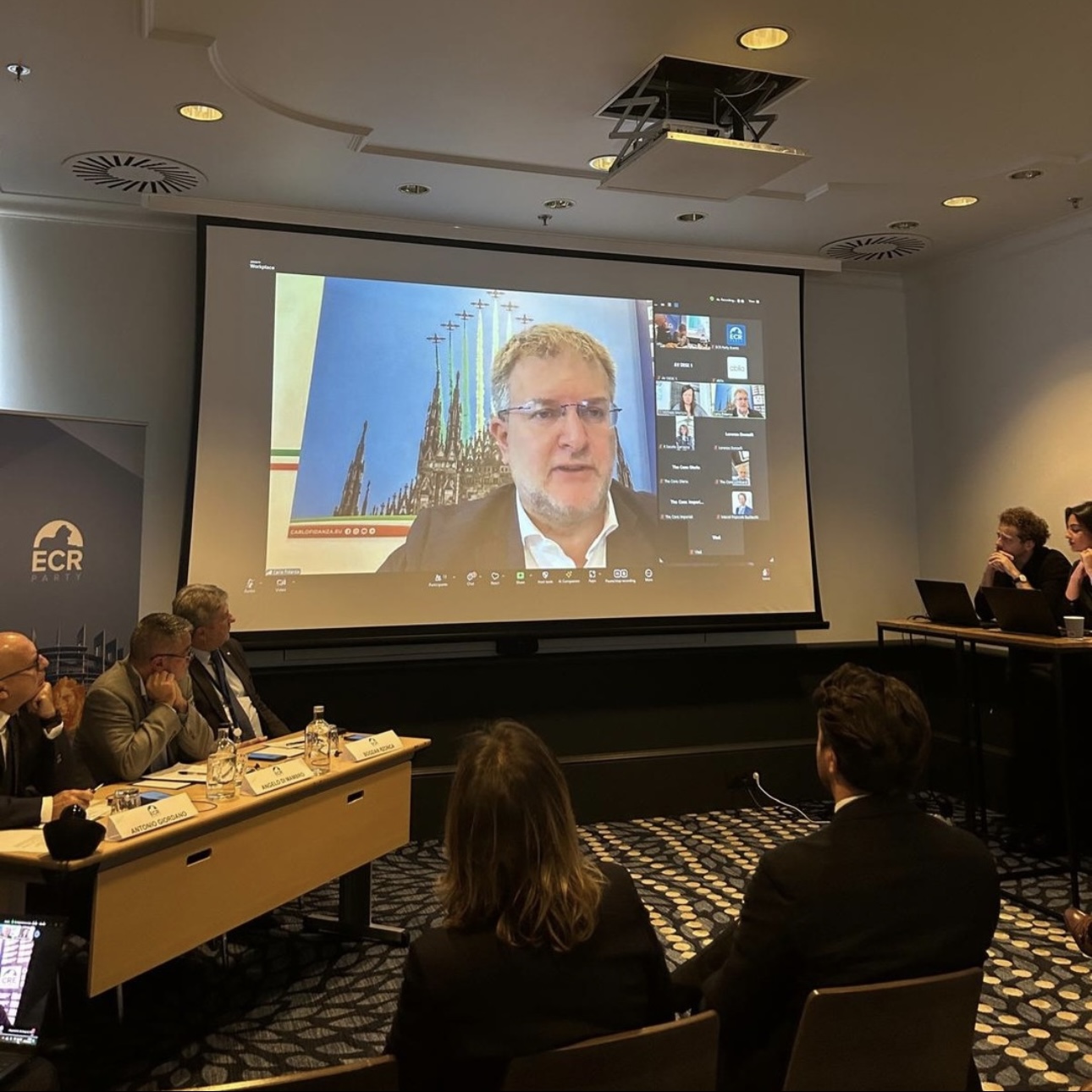
A statistical survey confirms the priorities of European conservatives
On Tuesday, the 29th, a press conference held by the ECR Party in Brussels provided an in-depth analysis of the European agro-industrial sector. The discussion highlighted various challenges and opportunities facing the industry, supported by statistical data and political perspectives.
“During the past year, France has marketed agricultural goods valued at over 76 billion euros, Italy at 51 billion euros, and Poland at 35 billion euros. At the recent G7 agriculture meeting held last September, critical issues such as sustainability, climate change, and food security were emphasized and discussed. Specifically, all parties recognized the necessity of investing in new and sustainable agricultural technologies, and we at the European Conservatives and Reformists Party are committed to contributing our share. With this survey, we aim to carry out our responsibility of listening to those who rely on agriculture and turning their input into actionable policies. It is crucial to remain united in supporting the primary sector to ensure the protection of our land”. Antonio Giordano, Secretary General of the ECR Party, opened the proceedings by stressing the significance of a collaborative approach to assist the primary sector, with a focus on pursuing a political agenda that seeks to lessen the restrictions imposed by the European Union.
Tecné Numbers and the Challenges of the Sector
 Michela Morizzo, Chief Executive Officer of Tecné, presented a comprehensive study derived from 4,500 interviews conducted with workers and companies in three distinct countries: Italy, France, and Poland.
Michela Morizzo, Chief Executive Officer of Tecné, presented a comprehensive study derived from 4,500 interviews conducted with workers and companies in three distinct countries: Italy, France, and Poland.
“It was an interesting work to compare three different Nations looking at the perception on the key topics from the different point of view of workers and from the point of view of companies” stated Morizzo at the outset of her presentation. “We had first to understand the economic and structural challenges perceived by these two categories and assess also the perception of government policies and support measures at the National and European level, analyzing the impact of foreign competition and understand the importance of environmental sustainability both for workers and companies” explained CEO Michela Morizzo at the beginning of her speech that exemplified and showed the complex but very clear results of the research.
This survey conducted an in-depth analysis of the priorities of employees and organizations, shedding light on several pivotal issues, including remuneration, occupational safety, working conditions, environmental sustainability, and technological advancement, alongside the notable lack of worker representation. The findings indicated that a significant 75.6% of Polish workers perceive their wages as inadequate, in contrast to 66% in France and 65.6% in Italy.
Moreover, the French workforce exhibited heightened concern regarding working conditions, while Italian and Polish respondents registered noteworthy, albeit comparatively lesser, apprehensions. Specifically, 57.4% of Italians reported challenges related to excessively prolonged working hours; this concern resonates with around 62% of Polish workers and more than 70% among the French cohort.
Regarding workplace safety, the survey highlighted that an alarming 42.7% of French workers identified safety as a critical issue, followed by 33.7% in Italy and 28.7% in Poland. These statistics underscore the urgent need for addressing these critical factors to enhance overall worker welfare and organizational efficacy.
From the perspective of companies, several critical challenges have been identified, primarily revolving around operational inefficiencies, escalating raw material costs, and stringent regulatory frameworks. A significant majority—over 80%—of respondents across Italy, France, and Poland concur that rising raw material costs exert substantial financial pressure, presenting a formidable obstacle to corporate competitiveness and long-term sustainability. This surge in costs not only hampers the ability to engage in new investments geared toward innovation and sustainability but also threatens the overall economic viability of firms.
Moreover, access to credit emerges as a pivotal concern, essential for any economy aspiring toward growth—indicated by figures of 51% in Italy and 44-48% in France and Poland. Additionally, more than half of the surveyed companies in all participating countries reported challenges in sourcing skilled labor, highlighting a significant workforce deficiency that exacerbates operational hurdles.
Lastly, complex regulatory environments are recognized as substantial impediments to operational effectiveness, with Italy reporting the highest concern at 39%, followed by Poland at 37%, and France at 31%. These intricate regulations contribute to inefficiencies that further slow down the operational fluidity of businesses, complicating their ability to adapt and thrive in a competitive landscape.
The Political Vision: Speeches by MEPs Rzonca, Fidanza and Bay.
“The main things I want to focus on are building self-confidence and optimism among all the people involved. Most of them are ready and eager to become more competitive in the market. It’s clear that our agricultural products and food meet the highest quality and safety standards in the world. Another important point I want to mention is the concern about how agricultural imports could affect our common market. We need to think about how well our political and control tools can protect our market from competition from outside”. This is what Polish MEP Bogdan Rzonca said after looking at the survey data. The member of the European Parliament did not miss the opportunity to reiterate his commitment to a more streamlined regulation that supports local agriculture and promotes the peculiarities of each European country – “The continuous increase in environmental standards imposed by Europe puts the competitiveness of our companies at risk. […] I am saying a strong no: no to double standards between EU farmers and our external trading partners”.
 In his speech, MEP Carlo Fidanza, head of FDI delegation at the European Parliament, highlighted the positive outcomes in Italy’s agro-industrial sector. He commended the policies implemented by the Meloni government and the Ministry of Agriculture, which successfully managed to quell the protests from Italian farmers. He noted that the protests were more focused on EU regulations than on national government measures. “I want to express great satisfaction from the Italian perspective on this matter. Under the leadership of Francesco Lollobrigida, Minister of Agriculture, Food Sovereignty, and Forests, both workers and companies have expressed favorable opinions. While there have been thousands of tractors on the streets in France, Germany, and Belgium in recent months—protesting against fuel costs and excessive regulations from the EU—in Italy, the protests were minimal” he says.
In his speech, MEP Carlo Fidanza, head of FDI delegation at the European Parliament, highlighted the positive outcomes in Italy’s agro-industrial sector. He commended the policies implemented by the Meloni government and the Ministry of Agriculture, which successfully managed to quell the protests from Italian farmers. He noted that the protests were more focused on EU regulations than on national government measures. “I want to express great satisfaction from the Italian perspective on this matter. Under the leadership of Francesco Lollobrigida, Minister of Agriculture, Food Sovereignty, and Forests, both workers and companies have expressed favorable opinions. While there have been thousands of tractors on the streets in France, Germany, and Belgium in recent months—protesting against fuel costs and excessive regulations from the EU—in Italy, the protests were minimal” he says.
The Italian Member of the European Parliament emphasized how the actions and ideology of the Vice President of the European Commission, Mr. Timmermans, have negatively impacted the capacity and competitiveness of the European agrifood sector. Today, MEP Fidanza argues that it is essential to relieve companies of the burdens placed upon them by Europe. He calls for the establishment of a level playing field that reaffirms the principle of reciprocity, which has been consistently ignored until now.
The role of enforcing geographical indication regulations is crucial for MEP Fidanza. This enforcement is essential not only to protect the Made in Italy brand (which also applies to other countries) but also to enhance and defend the quality of the products themselves. As noted by Polish MEP Rzonca, these products represent excellence. However, there are still some critical issues to address, such as certain labeling systems, like Nutri-Score, which are viewed as discriminatory toward high-quality products (for instance, Parmigiano Reggiano). These regulations seek to ensure a more balanced market that respects European excellence.
Nicolas Bay, a Member of the European Parliament from France, wrapped up the session with a pointed critique of the limitations inherent in current free trade agreements. He articulated a concern that these agreements fail to provide adequate protection for local producers, leaving them vulnerable in a competitive marketplace. Furthermore, Bay highlighted the potential drawbacks of various environmental policies enforced by the European Union, suggesting that they could stifle the growth and competitiveness of European businesses.
This discourse has reignited interest in a topic that is already a focal point in the ongoing political debate. The newly formed European Commission will undoubtedly face the challenge of managing this issue effectively. It must find a delicate balance between promoting sustainable practices and ensuring that companies do not face overwhelming regulatory burdens, thereby safeguarding both environmental goals and economic vitality.



 Subscribe
Subscribe